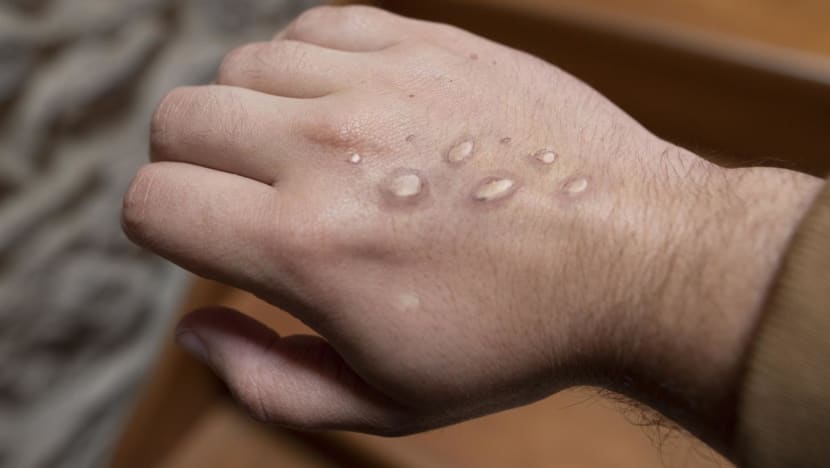Not a surprise if Singapore detects monkeypox case in coming weeks: Ong Ye Kung

File photo of monkeypox vesicles on a hand. (Photo: iStock)
SINGAPORE: It should not be a surprise if Singapore detects a monkeypox case in the coming weeks, as people in the country travel widely and also due to its position as a commercial and international hub, said Health Minister Ong Ye Kung on Saturday (May 28).
However, he assured that Singapore has in place the necessary protocols and public health measures, triggered by an imported case in 2019.
In a Facebook post, Mr Ong said: "Monkeypox is very unlikely to be a pandemic like COVID-19. It is transmitted mostly by close physical contact, and not airborne like COVID-19, which transmits more quickly and widely."
"It has generated much interest, including at the World Health Assembly that I recently attended, as the disease is no longer a rare disease confined to certain places in Africa, but is being passed from humans to other humans in many parts of the world," he added.
Over 200 cases of monkeypox have been detected in over 20 countries, he said, adding that it is a virus that has likely jumped from animals, such as rodents, to human beings, in certain regions of Africa.
Infected persons may experience the following initial symptoms: Fever, chills, headache, muscle ache and swollen lymph nodes.
The typical monkeypox rash lesions develops around the face/mouth or genital areas before spreading all over the body. It might appear to look like a common chickenpox rash and therefore review by a doctor is important, said Mr Ong.
"Anyone with a new unexplained rash, even if you have not travelled recently, should see a doctor immediately to be examined, so that a diagnosis can be made and early treatment started."
"Most often it is due to another common disease like chickenpox, but if you have monkeypox, then you can receive appropriate care and prevent spread to people around you," added Mr Ong.
Monkeypox can cause serious illness and deaths in a small percentage of patients.
The Health Ministry advised the general public to avoid close contact with individuals who are unwell with fever or have a pox-like rash and to maintain high standards of personal hygiene at all times, including washing of hands with soap before touching the face.














